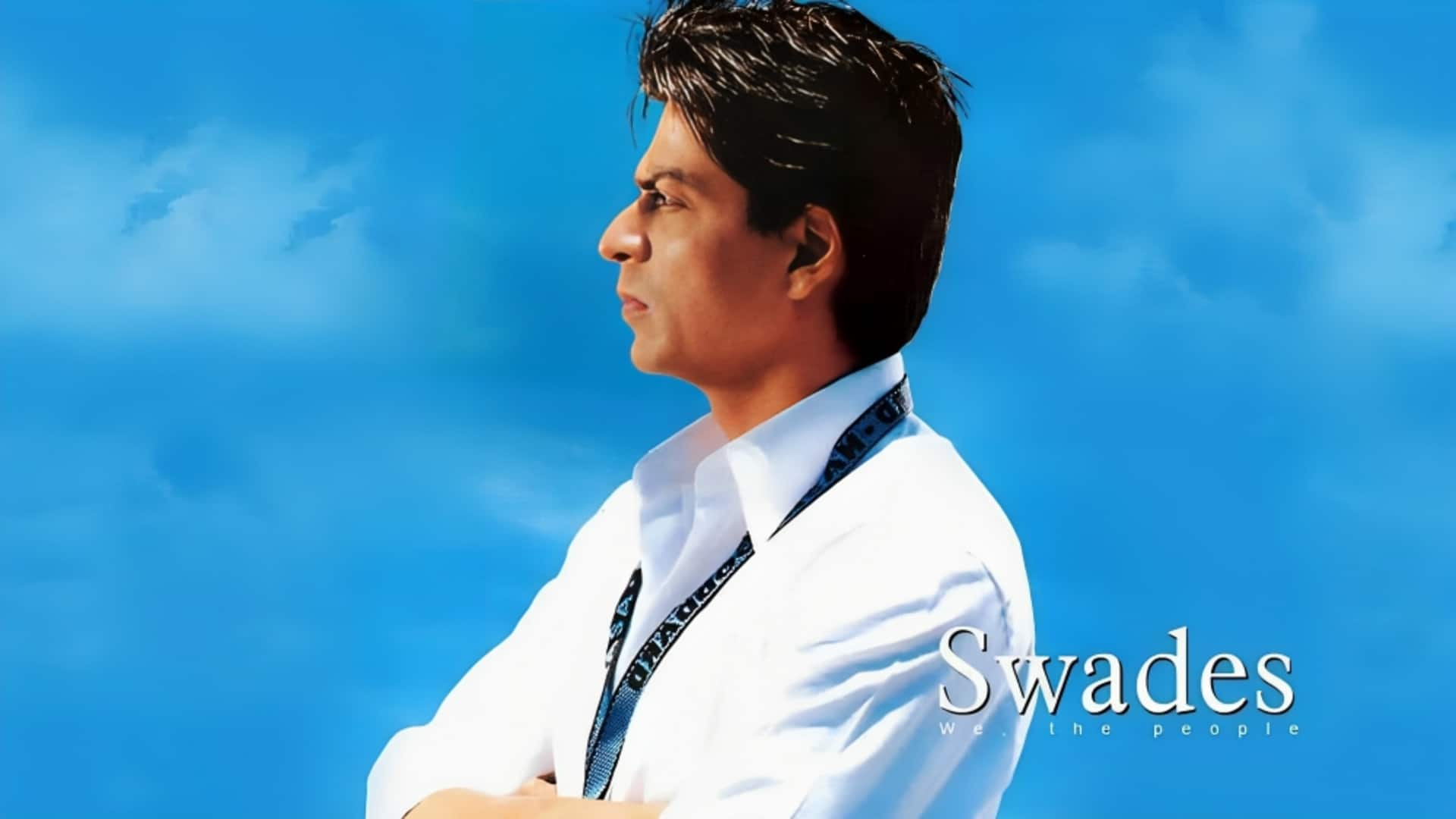
'Swades' 19th anniversary: What helped SRK starrer become cult classic
What's the story
A film that shines brightly in Shah Rukh Khan's oeuvre, the 2004 pioneering, cult-classic drama Swades completed 19 years on Sunday.
Helmed by Ashutosh Gowariker (Lagaan), it is considered one of SRK's best films and is remembered fondly for how it effectively presented a journey of self-discovery, ambition, and enlightenment.
On its 19th anniversary, let us revisit why Swades is such a landmark film.
#1
Quick glance at real story that inspired 'Swades'
Did you know Swades took inspiration from a real story? Doesn't that make your heart swell with pride?
Reportedly, its driving force was NRI couple Aravinda Pillalamarri and Ravi Kuchimanchi. They were behind the Bilgaon Project, which provided electricity to every home in this remote Maharashtra village.
They were also instrumental in building an ashramshala—a boarding school that reportedly caters to about 300 kids!
#2
Its emotional story moves you intuitively
We all love a good cry.
And what better story to tug at your heartstrings than one soaked in the sentiments of homecoming?
Swades is replete with such emotions. Be it Mohan Bhargava's concern for Kaveri amma or the feeling of unfathomable pain he is ravaged by when he witnesses the deplorable condition of his village, Swades offers you several moments to tear up.
#3
Khan's acting takes film places
Khan may be renowned globally for his romantic hero image, but there is more than that to his artistic caliber. This becomes apparent in drama films, with Swades being one of the frontrunners.
He emotes exceedingly well with his eyes. The Swades scene where his eyes well up after buying water from a child laborer forms a lump in your throat almost immediately.
Twitter Post
Take a look at the abovementioned scene
19 Years of Ashutosh Gowariker's #Swades
— ANSH (@anshu_aggarwal9) December 17, 2023
Released on 17Dec 2004 and it is One of the Best Indian Films and one of #ShahRukhKhan's Best Performance and Best Film.
The movie is full of Impactful Scenes but the Train scene just gives chills every time.pic.twitter.com/R1XxLxdWd6
#4
'Swades's music goes well with the film
Another factor that catalyzed Swades's success is its jukebox, with compositions by maestro AR Rahman and lyrics by Javed Akhtar.
Hariharan-Kailash Kher-Udit Narayan's Yun Hi Chala Chal, Rahman's Ye Jo Des Hai Tera, and Narayan, Master Vignesh, and Baby Pooja's Ye Tara Wo Tara, among others, capture the essence of the film incredibly well.
They weave beautiful stories painting a portrait of the characters.